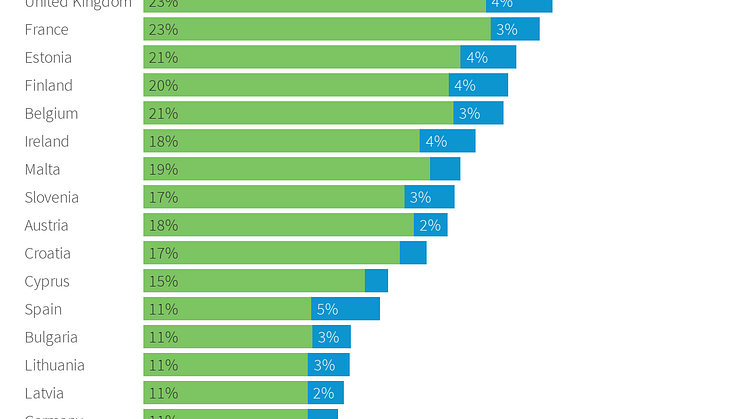
News -
COVID-19 could permanently change teleworking in Europe
The coronavirus (COVID-19) pandemic presents unprecedented health, social and economic challenges for Europe, and has profound implications for the way people live and work across the globe. One of the changes that it is already having is the proportion of people working from home, as governments put in place social distancing and isolation measures. Eurofound research shows which countries already had the highest rates of people doing telework, or ICT-based mobile work, in Europe.
In 2015, around one-fifth of workers did some form of telework or ICT-based mobile work — meaning they worked, either occasionally or regularly, from somewhere other than a main place of work. There was quite a wide range of variance between Member States: Italy recorded just 8% of workers doing telework/ICT-based mobile work, whereas in Denmark it was 38%.
The reason for this diversity across Europe was a combination of factors, such as a country’s affinity for technology; the availability and quality of its technological infrastructure; management culture and the drive for higher productivity within companies; and employees’ needs for spatial and temporal flexibility to balance work demands with family commitments and other personal responsibilities.
The full impacts of COVID-19 on the labour market are still to be seen, however, it is likely that rates of telework in Europe, and as a result employer/employee relationships, will be changed permanently.
 Get the data here.
Get the data here.
Read more



